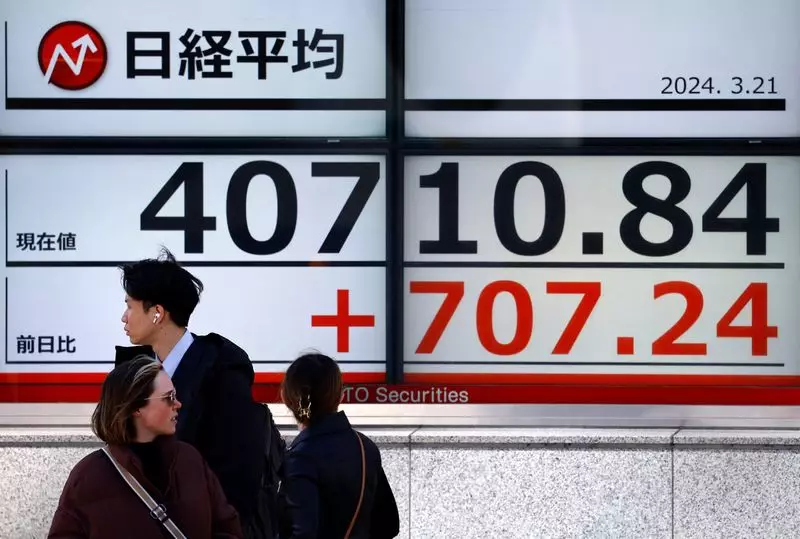The recent retaliatory attack by Iran on Israel has sent shockwaves through global markets. This direct attack on Israeli territory has heightened fears of a potential wider regional conflict, causing Asian shares to slump and gold prices to rise. The threat of open warfare between these two arch Middle East foes has put the entire region on edge, with the United States closely monitoring the situation. The cautious footing seen in Asian markets at the beginning of the week reflects the uncertainty and volatility caused by these escalating tensions.
Following the attack, Asian shares outside Japan fell by 0.7%, with major indices such as Japan’s Nikkei, Australia’s S&P/ASX 200, and Hong Kong’s Hang Seng Index all experiencing losses. The escalating tensions also led to a flight to safety, pushing gold prices higher by 0.51% to $2,356.39 an ounce. The safe-haven dollar also saw a surge, extending its 1.6% rise from the previous week. However, oil prices remained relatively stable, as traders had already factored in the potential disruption to supply chains from a retaliatory attack by Iran.
The geopolitical tensions in the Middle East have broader implications for the global economy. Neil Shearing, group chief economist at Capital Economics, highlighted the risks of a broader regional conflict and its impact on energy markets. Any rise in oil prices could complicate efforts to manage inflation in advanced economies, potentially influencing central bank decisions. The uncertainty surrounding the situation in the Middle East has the potential to inject heightened volatility into financial markets, affecting investor sentiment and risk appetite.
The recent events in the Middle East have also prompted a reevaluation of the monetary policy landscape. U.S. Treasury yields held near their recent highs as traders adjusted their expectations of rate cuts by the Federal Reserve. Resilient economic data, including the hotter-than-expected inflation report, has led to speculation that U.S. rates may remain higher for longer than initially anticipated. Market expectations have shifted significantly, with futures now pointing to a more modest amount of easing expected this year compared to earlier projections.
The evolving geopolitical landscape and its impact on financial markets underscore the interconnected nature of global economics. The ongoing tensions in the Middle East serve as a reminder of the fragile geopolitical balance and its repercussions on market dynamics. Moving forward, investors and policymakers will need to navigate these uncertainties carefully, considering the potential implications for economic growth, inflation, and monetary policy. The coming weeks will be crucial in providing further clarity on the direction of global markets amidst heightened geopolitical risks.

